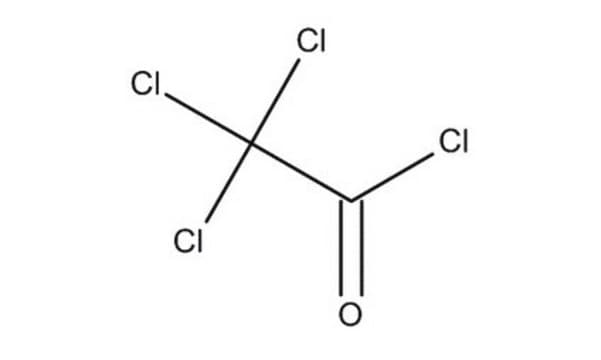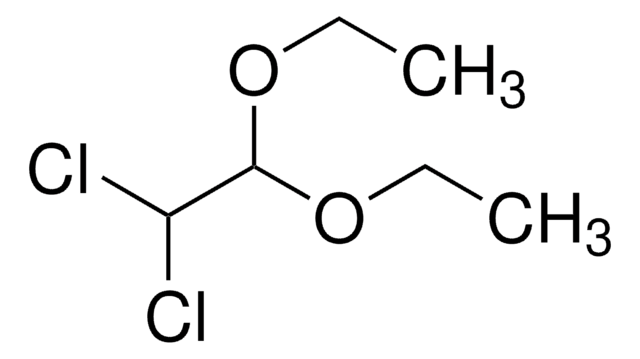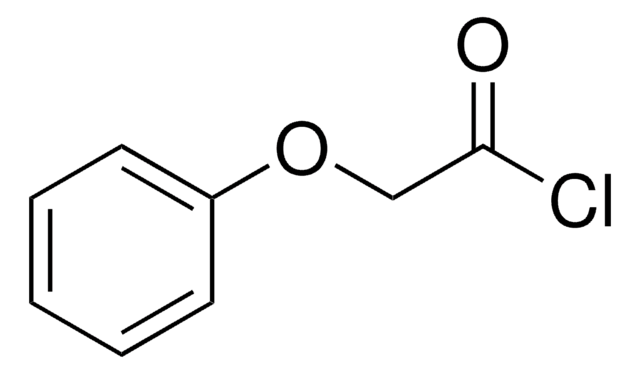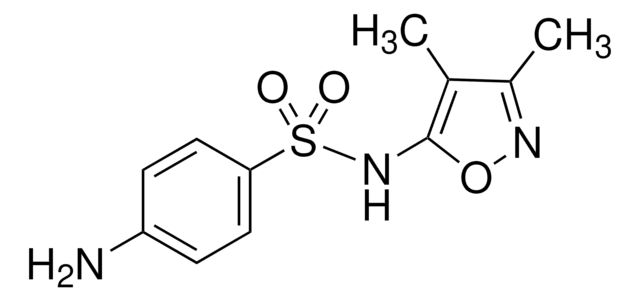Fontos dokumentumok
D55008
Dichloroacetyl chloride
98%
Szinonimák:
α,α-Dichloroacetyl chloride, 2,2-Dichloroacetyl chloride, Dichloracetyl chloride, Dichloroacetic acid chloride, Dichloroethanoyl chloride
About This Item
Javasolt termékek
Minőségi szint
Teszt
98%
Forma
liquid
törésmutató
n20/D 1.46 (lit.)
bp
107-108 °C (lit.)
sűrűség
1.532 g/mL at 25 °C (lit.)
SMILES string
ClC(Cl)C(Cl)=O
InChI
1S/C2HCl3O/c3-1(4)2(5)6/h1H
Nemzetközi kémiai azonosító kulcs
FBCCMZVIWNDFMO-UHFFFAOYSA-N
Looking for similar products? Látogasson el ide Útmutató a termékösszehasonlításhoz
Figyelmeztetés
Danger
Figyelmeztető mondatok
Óvintézkedésre vonatkozó mondatok
Veszélyességi osztályok
Aquatic Acute 1 - Carc. 1B - Eye Dam. 1 - Skin Corr. 1A
Egyéb veszélyek
Tárolási osztály kódja
6.1C - Combustible acute toxic Cat.3 / toxic compounds or compounds which causing chronic effects
WGK
WGK 2
Egyéni védőeszköz
Faceshields, Gloves, Goggles, type ABEK (EN14387) respirator filter
Válasszon a legfrissebb verziók közül:
Már rendelkezik ezzel a termékkel?
Az Ön által nemrégiben megvásárolt termékekre vonatkozó dokumentumokat a Dokumentumtárban találja.
Az ügyfelek ezeket is megtekintették
Tudóscsoportunk valamennyi kutatási területen rendelkezik tapasztalattal, beleértve az élettudományt, az anyagtudományt, a kémiai szintézist, a kromatográfiát, az analitikát és még sok más területet.
Lépjen kapcsolatba a szaktanácsadással














